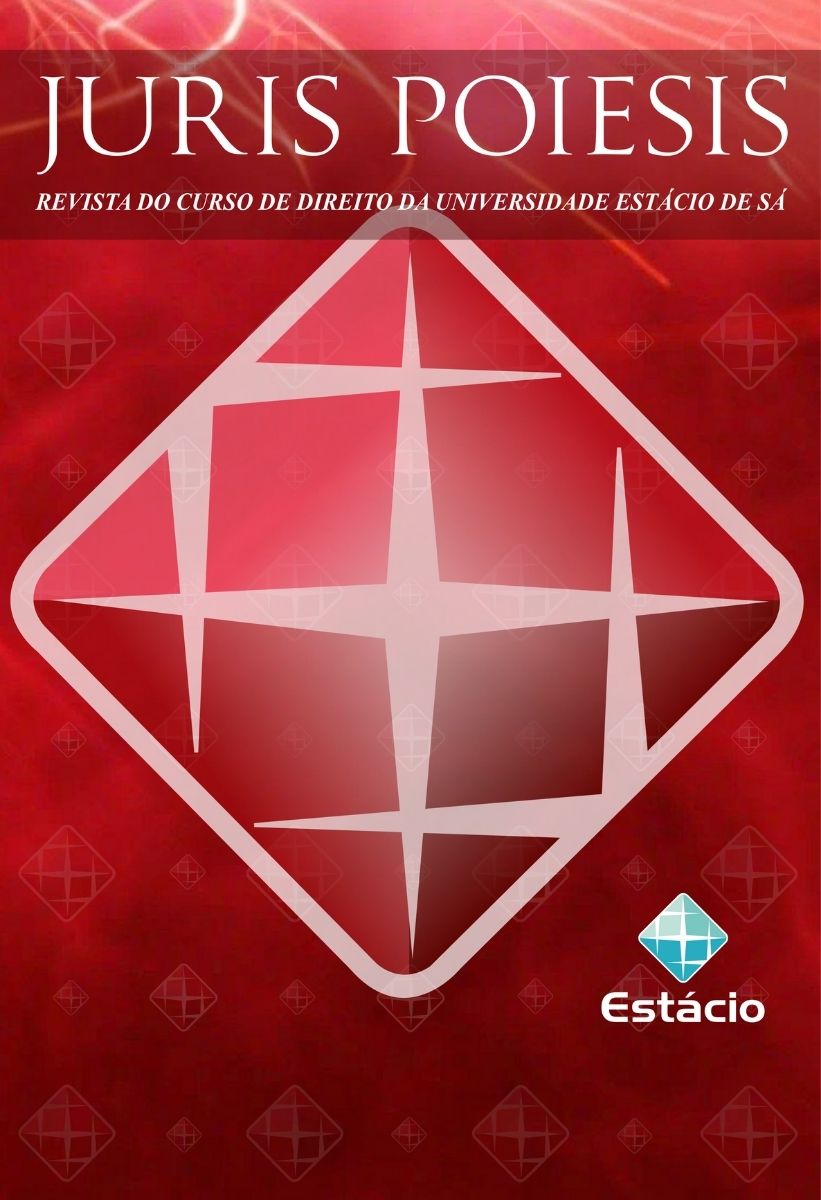DANO MORAL E MERO ABORRECIMENTO DA VIDA COTIDIANA
UMA ANÁLISE DOS CRITÉRIOS DE DISTINÇÃO APLICÁVEIS PELA JURISPRUDÊNCIA BRASILEIRA
DOI:
https://doi.org/10.5935/27.41.2024.11282Palavras-chave:
dano moral, consumidor, meroa borrecimentoResumo
O presente trabalho versa sobre matéria inserida no direito do consumidor, tema de grande relevância jurídica e social, principalmente dentro de uma sociedade de consumo em massa como é a brasileira. O estudo analisa a não caracterização do dano moral sob o argumento do ato ilícito praticado ser considerado mero aborrecimento. Ocorre que diante dessa questão, os tribunais rejeitam os pleitos indenizatórios por danos morais que tratam de relações de consumo alegando a tese de mero aborrecimento. Será examinado o cabimento do dano moral nas ações de consumo com ênfase no entendimento jurisprudencial, onde se delimitará uma linha tênue para aquilo que pode ser aceito como dano moral e para aquilo que venha a ser mero aborrecimento. O desenvolvimento do trabalho consiste em pesquisa aplicada, hipotético-dedutiva e qualitativa, com objetivo descritivo. Foi utilizada a pesquisa bibliográfica a partir de material já publicado, constituído principalmente de livros e jurisprudência. Por fim, verificou-se que não se pode restringir o conceito e a aplicabilidade do mero aborrecimento na vida cotidiana das pessoas, pois o dia a dia de cada um é diferente, ensejando proporções diferentes para cada uma dessas pessoas. Sendo assim, conclui-se que os julgadores devem examinar cada caso concreto, pois os conceitos e entendimentos jurídicos devem ser construídos em função da vida cotidiana, não podendo ser considerados fins em si mesmos.
Referências
BRASIL. Constituição (1988). Constituição da República Federativa do Brasil promulgada em 5 de outubro de 1988.
BRASIL. Código Civil. Lei nº 10.406 de 10 de janeiro 2002. Institui o Código Civil.
BRASIL. Código de Defesa do Consumidor. Lei nº 8.078, de 11 de setembro de 1990. Dispõe sobre a proteção do consumidor e dá outras providências.
CAVALIERI FILHO, Sérgio. Programa de responsabilidade civil. 6. ed. São Paulo: Malheiros, 2005.
CAVALIERI FILHO, Sérgio. Programa de responsabilidade civil. 9. ed. São Paulo: Atlas, 2008.
CAVALIERI FILHO, Sérgio. Programa de responsabilidade civil. 10. ed. São Paulo: Atlas, 2012.
COELHO, Fabio Ulhoa. Curso de direito civil. 5. ed. São Paulo: Saraiva, 2012.
COELHO, Fabio Ulhoa. Curso de direito civil: obrigações, responsabilidade civil. 6. ed. São Paulo: Saraiva, 2014, v. 2.
DINIZ, Maria Helena. Curso de direito civil brasileiro: responsabilidade civil. 17. ed. São Paulo: Saraiva, 2003. v. 7.
FERREIRA, Aurélio Buarque de Holanda. Mini Aurélio. O Dicionário da Língua Portuguesa. 7. ed. Curitiba: positivo, 2009.
GAGLIANO, Pablo Stolze; PAMPLONA FILHO, Rodolfo. Responsabilidade civil. São Paulo: Saraiva, 2011. v. 3.
GAGLIANO, Pablo Stolze; PAMPLONA FILHO, Rodolfo. Manual de direito civil. São Paulo: Saraiva, 2016.
GONÇALVES, Carlos Roberto. Responsabilidade civil. 6. ed. São Paulo: Saraiva,
v. 4.
MIRAGEM, Bruno. Curso de direito do consumidor. 2. ed. São Paulo: Revista dos Tribunais, 2010.
MORAES, Alexandre de. Direito constitucional. 13. ed. São Paulo: Atlas, 2003.
MORAES, Maria Celina Bodin de. Danos à pessoa humana: uma leitura civil-constitucional dos danos morais. Rio de Janeiro: Renovar, 2003.
RECLAME AQUI. Disponível em: https://www.reclameaqui.com.br/ranking. Acesso em: 01 mar. 2018.
REIS, Clayton. Avaliação do dano moral. 2 ed. Rio de Janeiro: Forense, 1998. p. 103.
REIS, Clayton. Os novos rumos da indenização do dano moral. Rio de Janeiro: Forense, 2003.
RODRIGUES, Sílvio. Direito Civil. 19. ed. São Paulo: Saraiva. 2002.
STOCO, Rui. Tratado de responsabilidade civil. São Paulo: Revista dos Tribunais. 2004.
STOCO, Rui. Tratado de responsabilidade civil: doutrina e jurisprudência. 7. ed. São Paulo: Revista dos Tribunais, 2007.
STOCO, Rui. Tratado de responsabilidade civil: doutrina e jurisprudência. 8. ed. São Paulo: Revista dos Tribunais, 2011.
TARTUCE, Flavio. Manual de direito civil. São Paulo: Método, 2015. v. único.
VENOSA, Sílvio de Sávio. Direito civil: responsabilidade civil. 3. ed. São Paulo: Atlas, 2011. v. IV.
Downloads
Publicado
Como Citar
Edição
Seção
Licença
Os autores de trabalhos publicados nesta revista declaram conhecer e concordar com as seguintes regras:
1. O envio de qualquer colaboração implica a cessão integral e gratuita dos direitos autorais à Revista, que não se obriga a devolver os originais das colaborações encaminhadas.
2. Os artigos publicados representam a expressão do ponto de vista de seus autores e não a posição oficial da Revista Juris Poiesis ou da Universidade Estácio de Sá.


